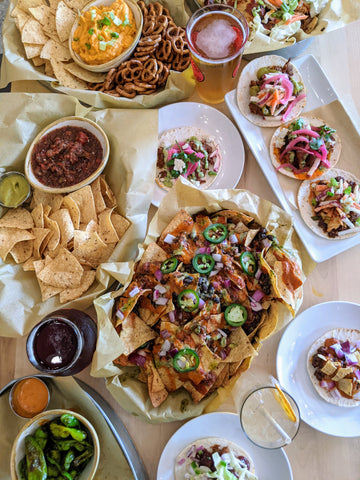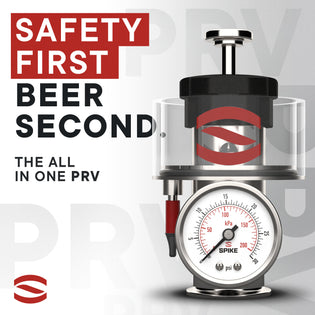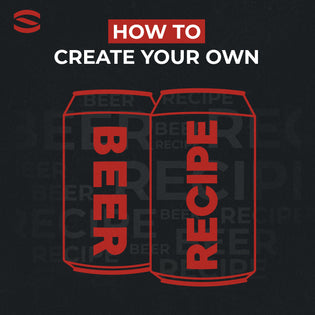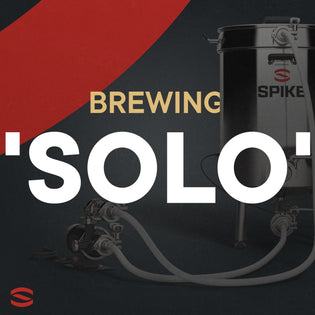By Nick Kocis
Dead Bird Brewing Company is Wisconsin’s only all vegan brewery and winery, and believe me, I’m aware of the irony of that. I’m Nick Kocis, owner and brewmaster at Dead Bird, and yes, we have a wonderful story about finding a deceased sparrow in our first home brew kettle that my bartenders have heard me tell more than a few times.

If you stop by our taproom on North 5th St in Milwaukee, you’ll notice a bit more than our vegan food menu. Our parking lot has gorgeous patterned pavers. We have a lovely garden planted with native Wisconsin plants under our beer deck. The deck itself is recycled plastic as our flight boards. If you take a few big steps back and peer up to our roof you’ll see 208 solar panels facing south. All of these from the vegan food to the native plants are all part of a move to sustainability in all parts of our company.
What is a vegan brewery?
Brief history of vegan brewing
Go back far enough and all beer is vegan. The German Reinheitsgebot laws of beer purity set down in 1516 limited beer to three ingredients water, barley, and hops with yeast being viewed as a process ingredient, something that was added to create the beer but wasn’t in the finished product. Over the years other things joined this “Process Ingredient” category. Herbs were added to create unique flavors, minerals were added to mimic water chemistry from other regions, fining agents were added to provide clarity with or without filtration. These fining agents are some of the first not readily apparent ingredients on the short list of things that can make a beer non vegan.
In the modern day there are lots of ways to provide brilliantly clear beer in the glass. Large breweries use centrifuges to spin solids out of beer down to microscopic levels. Plenty of breweries use filters to polish beer. Lots of these also use fining agents to ensure less particles are entering their expensive equipment. Traditionally fining agents ranged from seaweed extract, known as Irish Moss, to dehydrated fish swim bladder, known as isinglass. Gelatin, the powder that gives jello its jiggle, primarily extracted from boiling down animal bones, ligaments, and tendons, is another product used to clump particles together to make them easier to remove. While Irish moss is still commonly used along with other more modern chemicals, isinglass and gelatin have been seeing a downward trend for a litany of reasons.
Is a vegan brewery more environmentally friendly?
Technically the impact of vegan ingredients in beer is fairly minimal. The processing of beer ingredients from around the world and shipping it to Milwaukee via the modern global infrastructure has a much higher impact than the small amount of isinglass or gelatin we don’t use. Our food menu is all vegan and because of that the culture of massive factory farms and food waste that we avoid also has some impact.

However, we like to view veganism as the cornerstone of our environmental outlook. The partnerships we have with the Milwaukee Riverkeepers, our use of eco-friendly biodegradable chemicals, the water redirection from our permeable pavement parking lot, and even our smart lighting system all have a bigger impact on our environmental sustainability than those couple of beer ingredients. However, they are much less shiny and thought-provoking than telling you we’re a vegan brewery while you plow through the five pound pile that is our fully loaded nachos.

So while being vegan does have an impact on our environmental friendliness, it's not the only thing we do to help out our planet.
What are the environmental factors of a brewing company?
Environmentally breweries check most of the boxes in terms of industrial usage. Breweries use huge amounts of power and water. 85-97% of the product we produce is water, and we use even more water to make that mostly water product. Breweries create many things in addition to beer. Packaging, spent grain, residual yeast and hot/cold break, spent chemicals, and left over ingredient containers all come out of a brewery in addition to beer. In fact if you were to weigh what comes out of a typical small brewery, you’d find beer is probably not first on the list.
Finding sustainable ways to deal with these waste streams is a job unto itself. Classically spent grain, the other main product breweries produce, is fed to cattle. While in the land of beer and cheese this leads to many wonderful synergies, it doesn’t work everywhere. Alaska Brewing Company took a look around and didn’t see too many cows in the frozen landscape around them. They knew there were plenty several hundred miles south in California so they started shipping it there to keep it from piling up. This led to them installing a grain dryer to lighten the load and shipping cost in removing it. After that it made sense to install a spent grain burning furnace to power a generator on site which then powered the brewery. Perfectly closed loop there. Great Lakes Brewing grows mushrooms on their spent grain, New Belgian has their famous fish pond, many places make dog treats, or use it in pizza crust or bread. This kind of thinking is just the tip of the iceberg.
Several years ago I was working at a small brewery in Madison, home of the Forest Products Lab near the UW-Madison campus. They reached out to us looking for spent grain for a unique project. They were putting spent grain in an industrial steam press and putting tens of thousands of pounds of pressure on it fusing it into boards. Because the grain particles were very small they could press curves and shapes into the boards. They eventually wound up making corrugated building walls that were insulated with an eco-friendly product.
Chemical and yeast runoff can drastically affect local water treatment facilities. Reduction in chemical usage or using enzymatic cleaners can lessen the impact. New Glarus Brewing has an on-site water treatment plant and prides themselves on sending better water into the city than they receive in, by stripping wastewater of contaminants as it leaves the facility. Ozonated water has been implemented in dozens of breweries to replace environmentally harsher chemicals.
Packaging has also seen a dramatic shift in recent years. Aluminum cans are some of the most recyclable products on the planet. Brown glass, the other most common packaging in craft brewing, is at most 80% recyclable and can be much harder to process than aluminum. Shying away from plastic shrink wrap or plastic-based labels makes packaging even more eco friendly. We print most of our labels in house, and while it's not the most viable option for larger breweries, it works for us. Using a biodegradable, high-performance paper product with eco-friendly inks allows our cans to be easily recycled. Biodegradable six-pack rings made from spent grain are also available in certain markets.

How can a brewery be more sustainable?
Small breweries have it the easiest, especially those that are just starting. Implementing green infrastructure early on is the best way to make your brewery more sustainable. If you can install all LED lights, use electric power as much as possible over gas, and cut down on plastic in the kitchen, bar, and service areas all these will help make a business more sustainable.

Breweries are known water hogs. Most large breweries can tell you their water ratio, that is how much water they use to produce a certain amount of beer. Seven to one is a not uncommon ratio to see across the industry. That means for every pint or gallon or barrel of beer they produce, they use seven times that amount to make it. This is unavoidable in some cases, tanks must be rinsed and CIP’d, sanitizers must be diluted. Floors are commonly referred to as the hardest working piece of equipment in a brewery and must be kept as clean as possible. All of this is water intense. Any place you can cut back or use less, or in our case offset the usage, is a win. Dropping water rations from 7:1 to 6:1 could be hundreds or thousands of gallons a year not going down the drain. World-Class water usage from some of the most eco-friendly breweries in the state are under 3.5:1.
Timing can mean everything as well. While brewing must be done at a certain time, other steps can be timed to be more eco-friendly. We heat our hot liquor tank up over night for several hours, with it coming to temperature just before we need it in the morning. This reduces the strain on the electrical grid and puts what could be peak power consumption at a time where things are less in demand. This also means our electricity is cheaper at that time.
Types of Vegan Beer
What makes beers vegan friendly?
Vegan beer needs to be devoid of animal-derived ingredients and products, none can be used in its creation either.
Which beers are vegan?
Surprisingly most beers are vegan, especially on the smaller scale. If you have questions on if a beer is or isn’t vegan, barnivore.com is a great place to start looking. They have an extensive catalog of beers, wines, and liquors. Unfortunately this database is primarily aimed at larger scale manufacturers. Most brewers will happily talk about their process and can provide detailed information on what fining agents and ingredients are used in their brews and process.

However lots of the craft beer industry is centered around using unique ingredients, lactose (milk sugar), bacon, oysters, honey, and bull testicles have all made appearances in beer. The ingredients obviously make a beer non vegan.
How is vegan beer made?
Vegan beer is made exactly like any other beer! We do the exact same steps and processes that any other brewery does.

Is domestic beer vegan?
Some, but not all.
Coors = vegan except for Coors Light in the UK (isinglass) and a few of the Molson labels
Bud Light = Budweiser and Bud Light are all vegan
Miller Light = vegan
Leinenkugel = Some, the shandy and weiss lines contain honey which is not considered vegan
Blue Moon = Blue moon is a total crap shoot. Any of it in the UK is not vegan (isinglass) the honey wheat and honey summer ale are not vegan in the US, regular Blue Moon Belgian White is vegan
Michelob = vegan except for the honey wheat beers
Rolling Rock = vegan
Pabst Blue Ribbon = Pabst, Schlitz, and Old Style are all vegan
Busch Light = Busch, Busch Light, Busch N/A and Busch Ice are all vegan
Sam Adams = Sam Adams line except for Cherry Wheat and Honey Porter are not
Guinness/New Castle = Vegan now, however, in 2016 people were having allergic reactions to the levels of fish in the packaged beer
What are the benefits of drinking vegan beer?
Healthwise, vegan beer has similar effects to non vegan beer, moderation is key.
Where can you buy vegan beer?
All over! Again, MOST beers are vegan. There are a few standouts that are not, mostly traditionally brewed English beers brewed in England.

FAQs
Is honey vegan?
Honey is technically not vegan. Given the issues with pollinator reduction and hive collapse, we are seeing world wide sustainable practices and colony growth are super important. Personally if I know the honey is sustainably collected and the apiary is focused on producing more pollinating bees I will happily support them. This usually means purchasing locally produced honey from reputable growers.
Is beer vegetarian?
Beer is considered vegetarian as long as it does not contain animal products like isinglass, oysters, bacon, or other non vegetarian products.
Is wine vegan? Is cider vegan?
Wine and cider both have similar uses of fining agents. Gelatin is still a top used product in wine making. You see less use of milk sugars, and meat products in wine and cider.
Is there non-alcoholic vegan beer?
Several. Many large domestic N/A beers are vegan. We are also working on our own non-alcoholic beer.
Nick Kocis is owner and brewmaster of Dead Bird Brewing Company in Milwaukee. He has over a decade in the craft beer industry. He studied biochemistry and molecular biology at the University of Wisconsin at Platteville. He lives in Milwaukee and is a Wisconsinite from birth.





